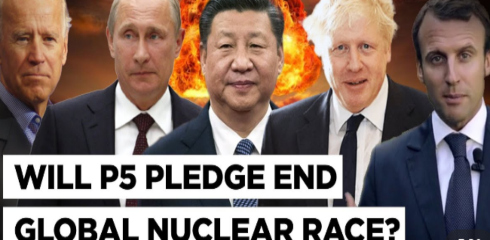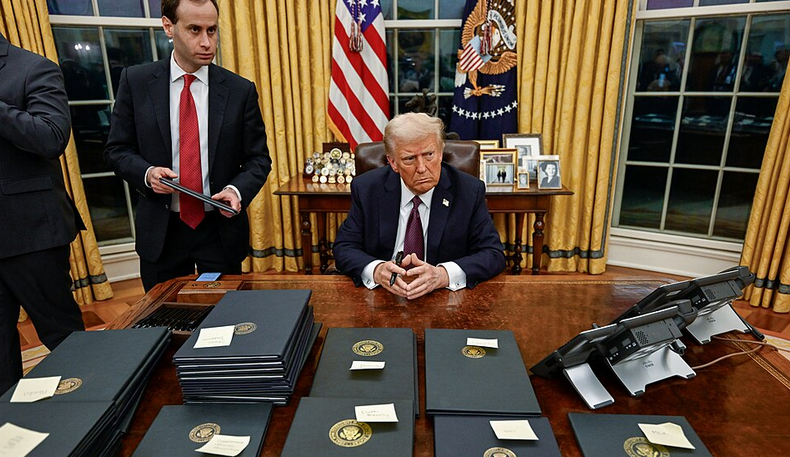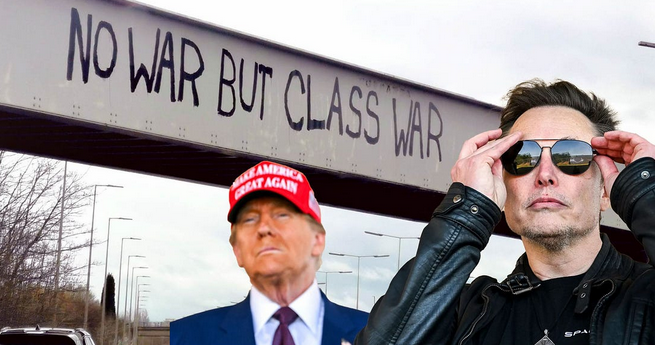Photos: Twitter\YouTube
On January 3rd of this year, the five nuclear-armed states with the largest nuclear arsenals issued a joint statement declaring that they “consider the avoidance of war between Nuclear-Weapon States and the reduction of strategic risks as our foremost responsibilities.” The statement goes on to “affirm that a nuclear war cannot be won and must never be fought.”
As the Doomsday Clock of the Bulletin of the Atomic Scientists stands at 100 seconds to midnight – “the closest it has ever been to civilization-ending apocalypse” – this statement would appear to be good news for the world.
However, all five of the signatories to the statement are currently engaged in maintaining powerful nuclear arsenals. Not only are these far larger than what would be required to destroy human civilization, and possibly most life on earth, but also these nations are planning huge expenditures to upgrade the “usability” and lethality of those arsenals.
The United States is leading the spending and spurring on the arms race, but the other nuclear-armed nations – apparently still under the illusion that these weapons make them safer – are joining the US in pursuing this travesty.
So are we to believe that the nuclear-armed states have seen the danger in their continued flirtation with nuclear Armageddon, or that they are just gaslighting the rest of the world, including their own people, with this statement?
Although most US residents may not know it because the mainstream media has little noted it, nuclear weapons have been outlawed. A United Nations treaty – the Treaty on the Prohibition of Nuclear Weapons (TPNW) – was approved by 122 nations and has now been ratified by 59. As the 50th nation ratified the treaty, it came into legal force globally on January 22, 2021 – one year ago. This exciting treaty bans developing, testing, producing, acquiring, possessing, stockpiling, and threatening to use nuclear weapons.
But, you may ask, what good is the treaty if the nuclear-armed states won’t sign it? Good question, because none of the nine nuclear-armed states has signed so far.
As usual with major social changes, the leadership does not often come from the so-called “leaders” (who are actually not leaders, but rather representatives). It comes from the people affected by governments’ policies. The treaty itself was the result of enormous pressure generated by the International Campaign to Abolish Nuclear Weapons (ICAN) (which won the Nobel Peace Prize in 2018 for its effort), working with non-nuclear-armed states and many other organizations around the world.
Getting the nuclear-armed states to join in will likewise take sustained pressure from a large organized movement. ICAN is building that movement, but is having much more success in Europe than in the United States.
Therefore, we here in the US – despite the urgency of addressing climate change, protecting democracy, eliminating racial discrimination, decreasing the wealth gap, recovering from COVID and all the other challenges we face – cannot afford to ignore this threat, which could end the world we love at virtually any moment, especially as tension tightens over the Ukraine.
We know it is possible to build such a movement because it has been done twice before here in the US. First in the 1950s, when above-ground nuclear weapons testing was releasing radioactive fallout that turned up poisoning mothers’ breast milk. That movement drove nuclear weapons testing underground in 1963.
Then, in the 1980s when President Ronald Reagan was joking about nuclear bombing the Soviet Union, another huge movement led to the cessation of explosive nuclear weapons testing, and ultimately to the Treaty on Intermediate Nuclear Forces.
This time we must build a movement strong enough to abolish nuclear weapons altogether. It will take a lot of work and will not happen overnight, but if we want to survive, it is up to the citizens of the nuclear-armed nations to demand that their governments conclude the nuclear disarmament agreements necessary to enable all of them to sign the nuclear ban treaty.
Become part of that historic, world-saving movement. On this first anniversary of the Coming into Force of the TPNW (January 22), take a step to add your voice to those already working to abolish nuclear weapons.
Sign a petition to the President asking that the US help abolish nuclear weapons.
Ask your representatives at every governmental level to take the ICAN pledge to “work for the signature and ratification of this landmark treaty by our respective countries.”
We will not know how much influence we can have until we build our movement and use it to demand nuclear abolition.
Peter Bergel was a co-founder of The American Peace Test, which brought tens of thousands to the Nevada Test Site in the late 1980s to offer civil resistance to nuclear weapons testing, which was subsequently stopped. He is also a retired director of Oregon PeaceWorks, a statewide peace, justice and environmental organization.







